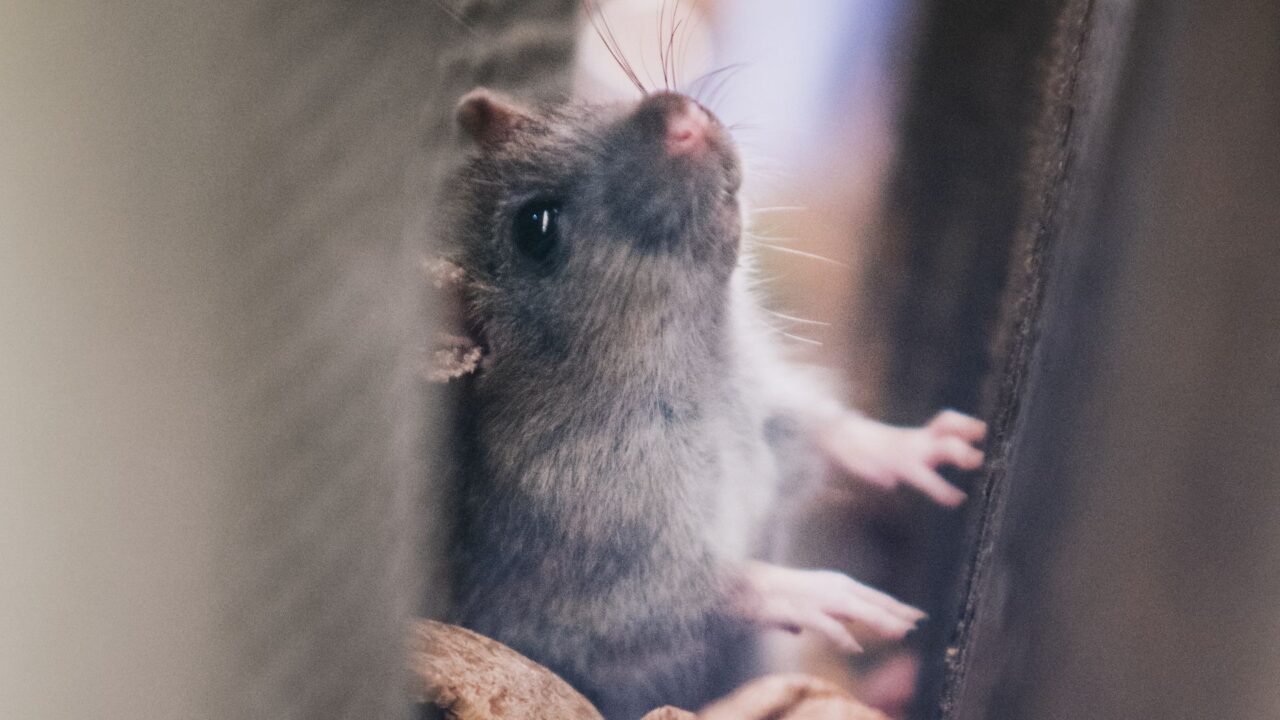perfect place to wait out winter. From mice sneaking into garages to raccoons in attics, prevention is key. Sealing entry points, keeping food and trash secure, and maintaining your property can save you from costly repairs and sleepless nights.
Why Cleveland Homes Attract Winter Guests
Every fall, animals begin scouting for safe, warm spots to survive the cold. With our long Cleveland winters and heavy lake-effect snow, even the most outdoorsy critters can’t resist a cozy crawl space or garage corner.
Common invaders include:
-
Mice and rats – squeeze through gaps smaller than a dime.
-
Squirrels – often enter attics to build nests.
-
Raccoons – clever, strong, and capable of tearing soffits or shingles.
-
Opossums and skunks – burrow under decks and sheds.
-
Bats – sneak in through vents and eaves for warmth.
-
Chipmunks – find openings near foundations.
-
Insects and spiders – take shelter in garages and basements.
Each of these pests can cause different problems — from chewed wires to health risks — so early prevention is worth the effort.
Step 1: Inspect and Seal Entry Points
Walk around your home before winter sets in. Look for:
-
Cracks in the foundation or siding
-
Gaps around doors, windows, and garage seals
-
Openings near vents, soffits, and chimneys
Use steel wool or hardware cloth to block small gaps — rodents can’t chew through it. Expanding foam sealant (like Great Stuff Pestblock Foam Sealant from Lowe’s) is also great for filling small crevices. For larger openings, consider metal flashing or hiring a handyman for professional sealing.
Step 2: Keep Food and Trash Secure
Critters follow their noses. Even small food odors can attract pests to your garage or kitchen.
-
Store pet food in sealed containers.
-
Keep outdoor trash bins tightly closed and away from the house.
-
Clean up spills in the garage, especially from bird seed or grass seed bags.
-
Compost piles should be far from your home’s foundation.
If you use bird feeders, sweep up fallen seed frequently — otherwise, you might end up feeding mice and raccoons, too.
Step 3: Declutter and Organize Storage Areas
Garages, basements, and sheds often become winter nesting hotspots because they’re full of hiding spots.
-
Keep items off the floor.
-
Use plastic storage bins instead of cardboard boxes (rodents love cardboard).
-
Rotate and inspect stored seasonal items once or twice per year.
A simple shelving system or pegboard setup can make a huge difference — something like the Kobalt Steel Garage Storage System helps keep everything neat and elevated.
Step 4: Maintain the Yard and Exterior
Your landscaping can play a role in pest prevention.
-
Trim branches back from the roofline so squirrels can’t jump onto your house.
-
Rake leaves and remove woodpiles close to the home.
-
Install a ¼-inch hardware cloth barrier under decks and sheds to prevent burrowing.
-
Keep gutters clean — standing water attracts insects and wildlife.
Regular maintenance is your best defense. A clean, open yard gives pests fewer places to hide and fewer reasons to explore.
Step 5: Protect Your Car and Garage
Believe it or not, mice and squirrels can make themselves at home inside your car engine bay.
-
Avoid storing bird seed, pet food, or trash near your vehicle.
-
Keep the garage door closed when not in use.
-
If you notice droppings or chewed wires, set traps immediately or contact pest control.
Some people swear by placing dryer sheets or peppermint oil under the hood to deter rodents — results vary, but they can help when paired with proper cleanliness.
Step 6: Know When to Call for Help
If you hear scratching in the walls, attic, or vents, don’t ignore it. Trapping or evicting animals safely requires care — especially with raccoons, bats, or nesting squirrels.
A local handyman or licensed wildlife removal expert can:
-
Inspect entry points
-
Remove pests humanely
-
Install exclusion barriers
Professional-grade repairs ensure the problem doesn’t return in spring.
Bonus: Natural Deterrents That Actually Work
While ultrasonic devices and gimmicks often disappoint, there are a few tried-and-true natural deterrents:
-
Peppermint oil – mice dislike the smell.
-
Ammonia or vinegar rags – deter skunks and raccoons.
-
Motion-activated lights – scare off nocturnal visitors.
-
Secure fencing – keeps opossums and skunks out of gardens.
Consistency is key. Reapply scents weekly and keep deterrents fresh through the season.
Keeping critters out of your home during Cleveland’s cold months comes down to prevention, vigilance, and maintenance. By sealing gaps, securing food, and keeping things tidy, you can protect your home, garage, and vehicles from unwanted winter guests.
If you need help sealing entry points, installing vent covers, or repairing damage caused by animals, Colin Can Help offers reliable handyman services across Northeast Ohio — from simple patch jobs to full exterior repairs.
Frequently Asked Questions
Q: How do I know if I have mice in my walls?
You may hear scratching at night, especially near the kitchen or attic. Look for droppings or gnawed materials around baseboards or food storage areas.
Q: What’s the best time to seal entry points?
Late summer or early fall — before animals start nesting. Once temperatures drop, many pests have already settled in.
Q: Can raccoons get into attics through vents?
Yes. Raccoons are strong and can tear open roof vents or loose soffits. Reinforcing these with metal mesh prevents entry.
Q: Should I use poison or traps?
Traps are safer and more humane. Poison can harm pets and non-target wildlife. Use snap or live traps depending on your comfort level.
Q: How often should I check my garage for pests?
At least once a month during winter. Quick inspections can prevent major infestations.

